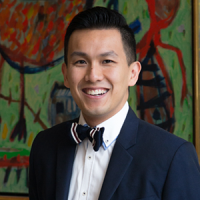Articles / Budget is a fizzer for GP

Any hope that momentum from last year’s budget would lead to further health reform has been dashed, say health advocates and peak bodies.
And general practice in particular seems to have been left out.
“I watched the budget waiting for something, and there was nothing, pretty much nothing, for general practice,” says Professor Karen Price, immediate past president of the RACGP, GP and researcher. She notes that the $300 energy rebate could cover the gap for six to seven GP consults.
“Basically this was a pre-election budget and they were feeding the advocates breadcrumbs. So everyone got a bit and nobody got a lot,” Professor Price said.
“There’s some very low evidence-based initiatives that I think are yet to be proven — and then there’s general practice standing with no shoes on and holes in its pockets with all the evidence and none of the money. And yet we’ve got digital health apps and all sorts of things appearing,” Professor Price said.
Australian Doctors Federation Chair Dr Aniello Iannuzzi was also disappointed.
“Overall it’s a fizzer, it’s really a non-event budget when it comes to health,” he said.
“I think it’s fair to say that the public and the profession were expecting more.”
Key announcements included:
Criticism from the peak bodies includes:
Australian Doctors Federation chair Aniello Iannuzzi said the lack of adequate rebate rise was detrimental to the profession.
“Until they make a serious correction to the rebate lag, nothing’s ever going to improve in general practice,” Dr Iannuzzi said. “They should be at least tripled to have any meaningful effect on GP.”
RACGP president Dr Nicole Higgins agreed. “This Budget says the government isn’t interested in ensuring the subsidies for healthcare for Australians are anywhere close to the real-life costs of providing that care,” she said.
Professor Price said the budget prioritised populism over proper policy, particularly when it comes to general practice.
“We’ve also got the early retirement and the leaky mid-pipe, especially for women GPs who do the hard yakka of really complex work, who are thinking of going off somewhere else,” she said. “So there is elasticity there, but we need to preserve those doctors before they’ve gone so long that they don’t want to come back.”
“There really wasn’t much for general practice, despite all the rhetoric. And I think that’s a really missed opportunity because the key indicator for success in general practice will be workforce numbers, and they are falling, and that means the government’s failing,” Professor Price said.
Dr Iannuzzi also noted that while nursing students have received much-needed funding, the same assistance has not been afforded to medical students.
Both the RACGP and AMA also sharply criticised this year’s budget.
“This budget has dropped the ball for Australians struggling to afford essential healthcare, and it’s a huge disappointment for GPs, practice teams, and our patients. The government took the first step to repair decades of devastating underfunding of Medicare and general practice care last year – now this work will stall,” the RACGP’s Dr Higgins said.
“Australians are already putting off essential care due to rising costs. This Budget won’t help, so out-of-pocket fees will increase. It will mean a sicker nation and more pressure on hospitals, which will cost the government much more,” she continued.
AMA president Dr Steve Robson called it a “lost opportunity” and lambasted the plan to fund more urgent care centres rather than general practice.
“What we need is reform that enables general practice to deliver the primary care that our patients need, not piecemeal announcements and changes that further fragment the system,” he said.

RSV Prevention in Infants and Pregnant Women

STIs – Common and Tricky Cases

Role of Testosterone During Menopause - Evidence vs Hype

Vision and Driving Fitness: Key Insights for Health Practitioners
Yes
No
Listen to expert interviews.
Click to open in a new tab
Browse the latest articles from Healthed.
Once you confirm you’ve read this article you can complete a Patient Case Review to earn 0.5 hours CPD in the Reviewing Performance (RP) category.
Select ‘Confirm & learn‘ when you have read this article in its entirety and you will be taken to begin your Patient Case Review.
Menopause and MHT
Multiple sclerosis vs antibody disease
Using SGLT2 to reduce cardiovascular death in T2D
Peripheral arterial disease
